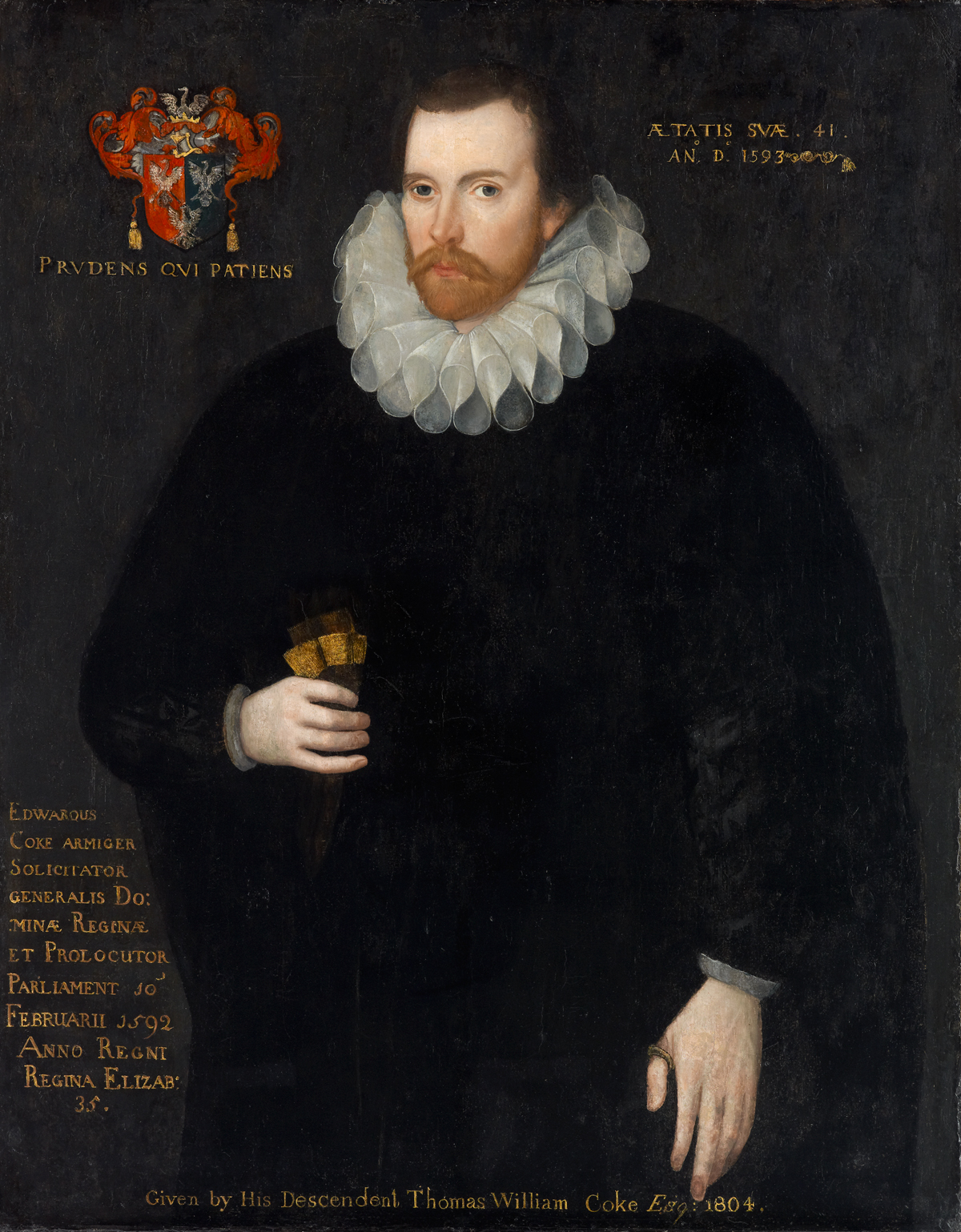Case of Swans, 7 Rep. 15, 17 (1592).
Famous Edward Coke Quotes
Semayne's Case, 77 Eng. Rep. 194, 195; 5 Co. Rep. 91, 195 (K.B. 1604).
“The King himself should be under no man, but under God and the Law.”
Prohibitions del Roy, 12 Co. Rep. 63, quoting Henry de Bracton's treatise on the laws and customs of England. http://www.uniset.ca/other/cs4/77ER1342.html
Institutes of the Laws of England
The First Part of the Institutes of the Laws of England, or, A Commentary on Littleton (London, 1628, ed. F. Hargrave and C. Butler, 19th ed., London, 1832), Third Institute. Compare: "Let us consider the reason of the case. For nothing is law that is not reason", Sir John Powell, Coggs vs. Bernard, 2 Ld. Raym. Rep. p. 911.
Institutes of the Laws of England
Institutes of the Laws of England, Second Part, vol. 1 (1642), Notes to Ch. XXIX of the Charter [Magna Carta], paragraph 1391 http://oll.libertyfund.org/index.php?option=com_staticxt&staticfile=show.php&title=912&search=%22tutissima%22&chapter=61105&layout=html#a_1375898
Institutes of the Laws of England
Edward Coke Quotes about laws
“Six hours in sleep, in law's grave study six,
Four spend in prayer, the rest on Nature fix.”
Translation of lines quoted by Coke. Compare: "Seven hours to law, to soothing slumber seven; Ten to the world allot, and all to heaven" - Sir William Jones.
Inscription in rings given by Coke to several of his friends on June 20, 1606, in anticipation of his judicial investiture; reported in Humphry William Woolrych, The Life of the Right Honourable Sir Edward Coke (1826) p. 75. Derived from a latin maxim, Lex est tutissima cassis; sub clypeo legis nemo decipitur: Law is the safest helmet; under the shield of the law no one is deceived.
The First Part of the Institutes of the Laws of England, or, A Commentary on Littleton, part 62a (London, 1628, ed. F. Hargrave and C. Butler, 19th ed., London, 1832).
Institutes of the Laws of England
Lord Campbell, Lives of the Chief Justices, Vol. 1, 338.
About, The Dictionary of Legal Quotations (1904)
Edward Coke Quotes
“He is not cheated who knows he is being cheated.”
The First Part of the Institutes of the Laws of England, or, A Commentary on Littleton, (London, 1628, ed. F. Hargrave and C. Butler, 19th ed., London, 1832), First Institute.
Institutes of the Laws of England
“A witch is a person who hath conference with the Devil to consult with him or to do some act.”
Reported in Margaret Alice Murray, The Witch-Cult in Western Europe: A Study in Anthropology (2007) p. 18.
Attributed
“Fraud and deceit abound in these days more than in former times.”
Twyne's Case (1602).
Case of Sutton's Hospital, 10 Rep. 32.; 77 Eng Rep 960, 973 (K.B. 1612).
“Thought the bribe be small, yet the fault is great.”
Institutes of the Laws of England, vol. 3.
Institutes of the Laws of England
“Magna Charta is such a fellow that he will have no sovereign.”
Speech https://oll.libertyfund.org/titles/coke-selected-writings-of-sir-edward-coke-vol-iii#lf0462-03_head_079 to the committee of the House of Commons (20 May 1628)
His law was continually warped by the different situations in which he found himself.
Heath, J., Jefferson v. Bishop of Durham (1797), 2 Bos. & Pull. 131.
About, The Dictionary of Legal Quotations (1904)
“The gladsome light of jurisprudence.”
The First Part of the Institutes of the Laws of England, or, A Commentary on Littleton, (London, 1628, ed. F. Hargrave and C. Butler, 19th ed., London, 1832), First Institute.
Institutes of the Laws of England
